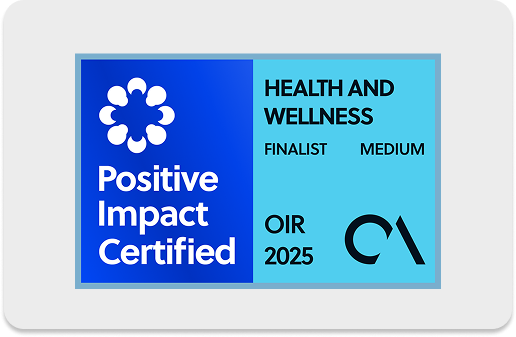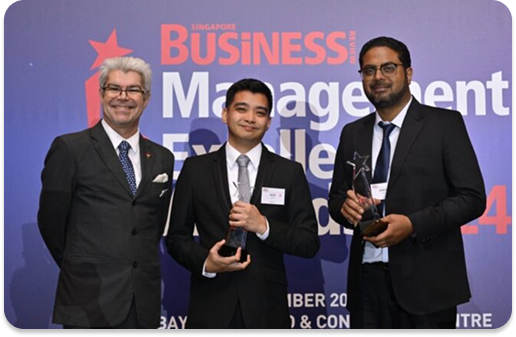After months and months of blood, sweat, and tears, you’ve finally unveiled your new product to the market. You have a website up and running, raking in crazy leads and sales by the minute.
But, customers are phoning your business like no tomorrow. They have endless questions about the product, how it works, and how much it is. Who will help answer these questions?
This is where SaaS customer support comes in. SaaS customer support or Software-as-a-Service customer support is vital to any business engaged in software development.
No matter how great of a service you’ve come up with or a product you’ve built, it will all be for nought without a dedicated customer support team.
Understanding the fundamentals of SaaS customer support is ultimately the key to better customer service outcomes.
Table of Contents
1. What Is SaaS Customer Support?

As industries become more competitive, post-sales proactiveness becomes a defining point. We often believe that a sale ends once the customer has brought the product or availed of the service.
However, this isn’t entirely true. There’s still the matter of addressing customer concerns, such as fixing defects, warranty, return/replacements, etc.
So how does SaaS customer support bridge this gap? Simply put, SaaS customer support is defined as providing continuous assistance to customers during pre-and post-sale. Whenever your customers encounter an issue with the product/service, a SaaS customer support team can find solutions. They are critical to customer satisfaction.
Aside from these roles, a SaaS customer support team may also engage in customer education. They can provide educational resources in the form of:
- Seminars
- Workshops
- Networking events
- Brochures
Through these learning opportunities, customer experience is improved, giving your business more visibility and traction.
2. The Importance Of Customer Support For SaaS Companies
SaaS customer support is an effective strategy to understand customers’ perceptions about your product and business. Your team is invaluable to customers and software developers, and engineers.
Following best practices regarding customer support allows your team to provide actionable insights that impact future planning and development.
In addition, a customer support team also reflects your business in its entirety. Customer service personnel are, more often than not, at the frontlines of your business. They’re the first group of individuals your customers come into contact with.
Your team helps define your success. With many monthly subscriptions and sky-high customer churn rates, a SaaS support team is invaluable in achieving customer success.
3. What Makes An Excellent SaaS Support Strategy?
Several components make up an effective SaaS support strategy. While it’s true that hiring a skilled team with great customer service skills is essential, there are also a couple of qualities to look out for.
Below are some areas you need to develop to build an effective support team:
- Customer service philosophy
- Skilled customer support agents
- Customer service tools
We’ll dig deeper into each to help you build and train winning SaaS customer support teams.
Customer Service Philosophy
A customer service philosophy or model is a set of values and guiding principles that drive your business. Your philosophy is essentially the compass dictating every customer interaction.
Your customer service philosophy defines how employees talk to customers and resolve their problems. When done correctly, your philosophy can be the secret to fostering loyalty and retention.
How can SaaS companies come up with a customer service philosophy? It may be helpful to ask the following questions:
- Are your values aligned with your strategies?
- How do you want your team to talk to your customers? What tone and language should they follow?
- How will you deal with customer escalations and misunderstandings?
- Is there a type of customer service (i.e., email, self-service, phone, or live chat support) that you cannot provide your customers?
- Assess your competitors. How do they provide customer service? How can you set yourself apart from them through your product and support strategy?
Answering these questions will help you build a customer service strategy which your support team can use in their interactions.
Skilled Customer Support Agents
Coming up with a customer service philosophy is only half the battle won. What use are they without the personal aspect? Who will be interacting with your customers?
This is where you’ll need to hire skilled customer support agents.
You need to hire the right talents to build a dedicated support team. You’ll have to come up with the ideal candidate instrumental in the success of your SaaS customer support.
Remember that you want to hire the right fit. Start by creating compelling copies for your job postings and adding detailed requirements for the role.
You can discuss the following points:
- Company profile
- The ideal candidate’s responsibilities and how they can contribute to the company
- Requirements for the role
- Expected salary
Ideally, they should also possess the right qualities. Here are some examples you can refer to when patterning your job postings:
- Excellent communication skills
- Can engage in problem-solving situations
- Strongly inclined towards technology
- Can work without supervision
- Fast learner
- Can understand the nitty-gritty of the software
Once you’ve trimmed down applicants and built a team, determine how to assess their performance. Engaging in one-on-one performance evaluations helps measure success.
Additionally, evaluations equip your SaaS support team with the skills, qualities, and knowledge base needed to improve their productivity.
Customer Service Tools
Your SaaS support team needs the right tools to execute its responsibilities. Remember, customer satisfaction hinges on effective solutions. The only way to achieve that is through using the proper channels that benefit your team’s performance.
Find which tools to use by asking yourself the following questions:
- What kind of help do your customers require?
- What do your customers expect from your business?
- What skills does your current team have?
- Where does your team pull up customer information?
- Check your competitors. What platform do they use to accept customer support requests?
- What questions does your team usually answer?
You can always choose from numerous customer support channels, like email, live chat, social media, forums, etc. But if the quality of customer service is inconsistent throughout, you need to make several changes.
Trim down your support channels and instead focus on those that can meet specific business goals.
For example, your customers may be asking technical questions. Instead of asking them to submit a support ticket, it’s much more effective to co-browse or collaborate with the customers in real-time.
Meanwhile, adding live chat support can improve satisfaction if your customer complaints are often about the long response times.
But suppose you’re already struggling to provide customer support on your existing channels. In that case, improving your customer support quality is more cost-effective than adding new channels and hiring more talents.
Adding in new channels means more investment in training, skills building, and essential peripherals. To avoid costly outcomes yet still provide excellent customer support, focus on finding the right tools that work for your support team and customers.
4. Best Practices For SaaS Customer Support
SaaS customer support is pretty straightforward. Support agents answer calls and remain as kind and courteous as possible throughout the interaction.
But, some best practices can also help you provide outstanding customer service. Check them out below.
Focus On Documentation
You must invest in creating a solid knowledge base or database of information. Though documentation can take time, your efforts will pay off ten-fold in the long run.
Statistics show that customers prefer a self-service option. They would rather answer their own questions than be looped through multiple channels to find a solution.
This is one of the reasons to prioritize documentation. A database of customer data, product details, past interactions, etc., will help your team answer effectively.
For example, one of your support representatives decides to take the day off. Other agents can rely on documented information to help customers instead of asking the agent to supplant the needed details.
As your company scales, having documented product knowledge is one of the secrets to creating a great customer experience.
Invest In Product Knowledge
Hiring entry-level employees and having them respond to customers can be tempting. But if you don’t invest in training and knowledge building, you can expect many support-related problems in the future.
Your customer support team spends a chunk of their time directly interacting with the customers. They know their customers’ quirks, needs, wants, and struggles. As such, you may consider investing in product knowledge to create a solid connection between support and product.
Bridging the gap between customer support and product mastery can be done in various ways. For example, you can include your support team in SaaS product meetings, establish employee connections, and circulate support material throughout the company.
Track Your Progress
How do you measure the quality of your customer support? Tracking your progress helps determine if you’re meeting your goals and delivering the great support your customers expect.
For this, you’ll need to measure your support team’s performance. Here are some metrics to track:
- The number of tickets – Are they taking on more or fewer tickets daily?
- Average response times – Do they quickly respond to customer requests?
- Customer satisfaction – Are customers happy with the service? Do they provide positive feedback?
Understanding the impacts of your business’s customer support efforts is also essential to your success.
For instance, you could count how many customers upgraded from a trial to the paid version of your software. You could count the number of customers who have churned as well.
Provide Proactive Customer Service
Many support teams opt for reactive support. A customer reaches out to them, and the support team responds.
But in SaaS customer support, proactive customer service offers more value. It’s better to make the first step to assist the customer rather than allow the issue to escalate and deal with an angry customer.
Be more proactive by understanding the trend of customer complaints. What are they usually asking or complaining about? With this knowledge, you can provide support through easily accessible documentation, brochures, product guidelines, tooltips, etc.
However, there is an exception. For example, if tons of your customers complain about a specific issue, it’s best to fix the product.
All of the above can be possible through documentation. It offers a better customer experience and allows your support team to address more complicated matters.
Consider Automating Routine Tasks
Is your support team repeatedly doing the same tasks? You may want to consider automating them.
For instance, consider automating the process if they’re manually addressing refunds daily. Automation saves time and effort for both your team and customers.
Putting up a Frequently Asked Questions (FAQs) page on your website or social media channels may also be helpful. Saved and automated replies can direct your team’s effort toward more complex issues.
Conclusion
Developing a SaaS support model for your organization takes you closer to customer success.
Investing in this support model helps your customer support staff respond to customers and address issues accordingly. Moreover, they can free up their time to focus on other complicated issues.
You can achieve all these by identifying your business’ customer support philosophy, providing the right tools, and improving efficiency wherever possible.
For more information on SaaS customer service, contact Gear . We’re a global business process outsourcing provider developing tailor-made solutions for our partners. We offer customer care, data entry, and data labelling.
Frequently Asked Questions About SaaS Customer Support
To develop your team, consider the following tips:
- Divide your staff into different channels.
- Follow an omnichannel customer service approach.
- Create opportunities to grow and develop.
- Match your structure with your support goals.
- Train your staff to become subject matter experts.
A SaaS customer manager supervises a cross-functional team focused on customer success. They directly work with consumers, ensuring they are maximizing the use of a product or service.
SaaS products are software hosted by a central provider. Customers get the software through the internet rather than installing or downloading the application on their systems.
Customers expect fast response times and delivering great support. When it comes to SaaS, speed and efficiency are the names of the game.
Gear Inc.














